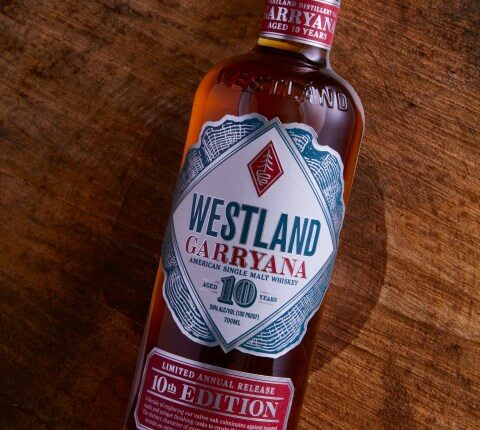Share this @internewscast.com

Thieves who absconded with 12,000 bottles of craft whiskey in a rare U.S. liquor heist this summer did more than just secure nearly $1 million worth of product — they also whisked away nearly half the stock that single malt distillers had spent over a decade crafting.
Currently, the Skagit Valley Sheriff’s Office is investigating, and whiskey enthusiasts are left wondering if — and where — the sought-after bottles of Westland Distillery’s inaugural 10-year Garryana whiskey might surface.
The bottles vanished on July 31, when someone driving a freight truck arrived at Westland Distillery’s warehouse in Burlington, Washington, with documentation allegedly authorizing them to collect a shipment of Westland single malt, Watchpost blended, and Garryana whiskies destined for New Jersey.
However, the bottles never reached their intended destination, and the “sophisticated, fraudulent carrier scheme” was uncovered a week later, according to Jason Moore, the managing director of the Seattle-based distillery.
The 10th anniversary edition bottles of Garryana are irreplaceable, said Moore.
“This is an unfortunate and pretty extraordinary situation,” said Moore.
The Skagit County Sheriff’s Office didn’t immediately respond to a phone message left by The Associated Press.
It could prove challenging to market the stolen items, stated Mark Gillespie, the host of the WhiskyCast podcast, who has recorded over 3,800 tasting notes for various whiskey types.
“It’s going to be really difficult for whoever took this to actually introduce it to the market, because what they stole is so rare that everyone is aware of it,” Gillespie said. “We occasionally see these thefts in Scotland, where thieves steal a trailer full of whiskey — and it typically ends up in Russia.”
But getting 12,000 bottles out of the U.S. could be difficult because the bottles are rare and recognizable, and flipping them in the U.S. may be tough because of the nation’s three-tier system for alcohol sales. Distilleries generally have to sell liquor to distributors or wholesalers, who then sell to retailers and restaurants and bars. Selling alcohol on the secondary market — such as when individuals buy up popular bottles and then resell them for a profit — is generally illegal.
That’s not true in much of Europe, where auction houses and other businesses specialize in secondary market sales.
“The providence of the Garryana is important because it’s their first 10-year-old whiskey,” Gillespie said. “Basically, age statements state how old the whiskey is, and in this country you have a lot of craft distilleries that aren’t quite 10 years old. So for a craft distillery to be able to release a 10-year-old is an accomplishment.”
Westland focuses on single-malt whiskeys, a style of liquor made from barley, similar to a Scotch whiskey. But Moore says Westland has worked hard to capture the terroir of the Pacific Northwest inside each bottle, using locally produced grains, peat harvested from an Olympic peninsula bog and a specific type of yeast selected to bring out the regional flavors.
That’s what makes the Garryana special, he said — it’s aged in casks made from the Quercus garryana oak tree, which grows primarily in the Pacific Northwest.
The limited-edition whiskey regularly wins awards, said Gillespie, and the 2023 edition was named the third best whiskey in the world by Whisky Advocate magazine. The Garryana sells out every year, Gillespie said, and with 3,000 of this year’s 7,500-bottle release gone, the price on the secondary market will be driven up.
Moore said the company has taken additional steps to protect its supply chain, and right now they are focusing on serving customers instead of the investigation.
“What happens from there is outside of our control, and we get excited about sharing our whiskey and engaging with the supporters we have,” Moore said. “This is an extremely rare thing, and while it’s a setback, we’re confident that we’re going to get to share this whiskey. We’re proud to make something people enjoy.”
Losing $1 million in stock would put a lot of distilleries out of business, but Gillespie said he expects Westland to make it through the loss, in part because it was acquired by the Paris-based Remy Cointreau Group in 2016. Still, he has some advice for people eager to get a taste of Westland’s products: Stick to the legal supply chains.
“If somebody tries to offer you a case of Westland whiskey right now, I’d call the cops,” Gillespie said.















